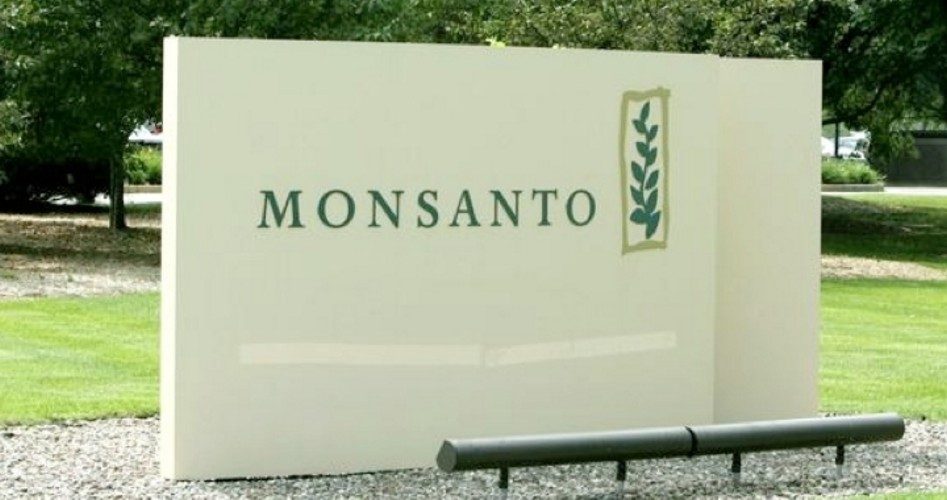
Since the introduction of genetically modified (GM) crops into the food supply in the mid-1990s, the European Union has generally resisted allowing these crops to be planted in member countries. This resistance has primarily been due to the fact that there is much debate over the potential harm that GM crops could do to the environment and other non-GM crops, and the potential harm that food containing genetically modified organisms (GMOs) may do to humans.
This resistance seems to be weakening, however, no doubt due to persistent pressure from Monsanto, the world’s leading biotechnology firm, and Monsanto’s many allies in the U.S. government. According to mercola.com:
It’s quite clear that the U.S. government, which is closely tied to Monsanto, has been aiding and abetting Monsanto’s tireless and often ruthless quest to control the world’s food crops.
U.S. diplomatic cables released by WikiLeaks, showed the government even conspired to find ways to retaliate against Europe for refusing to use GM seeds, mainly by engaging in aggressive trade wars against reluctant nations. As you might suspect, the EU has been under heavy pressure to add some slack to their GM regulations — and it seems they are about to cave.
While GMOs have been ubiquitous in the U.S. food supply for nearly two decades (unlabeled and unbeknownst to most of the American public, and after very little testing), several European countries have traditionally upheld bans against the planting of most GM crops and required any processed foods containing GMOs be labeled.
Apparently reflecting a recent change of heart, the eurozone is proposing to drop its “zero-tolerance” policy toward untested and unapproved GMOs in food. The new proposal would allow GM ingredients into the food supply in levels below a certain threshold. This echoes a decision made last year to allow GM crops to be used in animal feed below certain concentration levels. Why this recent “change of heart”? Opponents of GM crops note that the dropping of the zero-tolerance policy is due to pressure from the U.S. government, the World Trade Organization (WTO), and the biotech industry (arguably led by Monsanto).
Germany, for example, has banned Monsanto’s MON810 corn, and several years ago France asked the European Commission to suspend Monsanto’s authorization to plant MON810, citing studies that show the GM crop poses significant risks to the environment. The European Union, however, stepped in and blocked the ban. Craig Stapleton, who was the U.S. ambassador to France at the time, had this to say:
Europe is moving backwards not forwards on this issue with France playing a leading role, along with Austria, Italy, and even the [European] Commission…. Moving to retaliation will make clear that the current path has real costs to EU interests and could help strengthen European pro-biotech voice.
Country team Paris recommends that we calibrate a target retaliation list that causes some pain across the EU since this is a collective responsibility, but that also focuses in part on the worst culprits. This list should be measured rather than vicious and must be sustainable over the long term, since we should not expect an early victory.
This was an admission by a representative of the United States that the U.S. government, working with biotech firms, had plans to “retaliate” against those who attempted to stop the spread of GM crops. They recommended causing “pain” in the EU and admitted that there would be a prolonged battle.
In the United Kingdom a big push for GM crops is underway. The UK’s Agriculture Biotechnology Council (ABC) recently published a report titled “Going for Growth” that recommends GMOs be placed in the forefront of the UK’s agricultural developments. While the ABC may appear to be a government agency, it is in fact a pro-GM lobbying group that represents the interests of Monsanto, Bayer, DuPont, Syngenta, and other biotech giants.
GM crops are causing problems in other European countries, whether those governments have banned their use or not. As mercola.com notes:
Two years ago, the Food Freedom blog reported that the Irish government accidentally planted Monsanto’s Roundup Ready GM maize, which was, and still is, banned in Ireland. The contaminated seeds had been supplied by Pioneer Hi-Bred Northern Europe, a subsidiary of DuPont. To protect surrounding farmers and organic farms, the contaminated maize crops were destroyed before flowering, to prevent pollen drift. However, there’s still no telling the full extent of the GM contamination. After all, it was only discovered through random testing. The seed had been verified as “GM-free” by Pioneer Hi-Bred.
Last year, a Greenpeace report revealed Monsanto’s GM corn had been discovered across 3,000 hectares (7,400 acres) in seven German states. Since GM corn is banned in Germany, the farmers had to destroy their crops and “eat” their losses, as the seed companies refused to accept liability for the contamination.
In 2007, pollen drift from GM maize (MON810) fields were also found to have contaminated hundreds of conventional and organic farmers in Spain; the only country in the EU that allows GM maize to be cultivated.
Farmers who plant non-GM crops have frequent issues with cross-contamination by GM crops, even in countries where GM crops are banned. While this may seem like an insignificant problem to those unfamiliar with the controversy surrounding GMOs, cross-contamination can have serious negative consequences. The most obvious consequence is that the GMOs can end up in the human food supply, and some studies have shown that GMOs may lead to an assortment of health problems. Additionally, in countries where GM crops are banned, the contaminated crop must be destroyed at the farmer’s expense. If contamination occurs in a country that accepts GM crops, such as the United States, the affected farmer will likely be sued for patent infringement, and will still have to destroy the crop.
These consequences often result in small, independent, non-GM farms being forced out of business, while biotech companies continue to gain more market share with the help of government regulations. Critics have long noted the “revolving door” between the boards of big biotech companies, especially Monsanto, and government offices. This no doubt helps the cause to spread GM crops around the world, as biotech companies appear to be attempting to dominate the world’s food supply. This is a fine example of fascism, and certainly not a model of free enterprise (which would support independent small farmers).
While the European Union seems to be weakening from the biotech-and-government onslaught, there is growing opposition to GMOs in the United States. While companies such as Monsanto have typically enjoyed extremely favorable legislation in America, several states have started ballot initiatives to get legislation passed that would mandate labeling of foods containing GMOs. Mercola.com reports that California’s initiative is drawing the most attention:
Since California is the 8th largest economy in the world, a win for the California Initiative would have the power to affect ingredients and labeling nation-wide. A coalition of consumer, public health and environmental organizations, food companies, and individuals has submitted the California Right to Know Genetically Engineered Food Act to the State Attorney General. Now, they need 800,000 signatures to get the Act on this year’s ballot.
It appears the fight for food freedom is just beginning.



